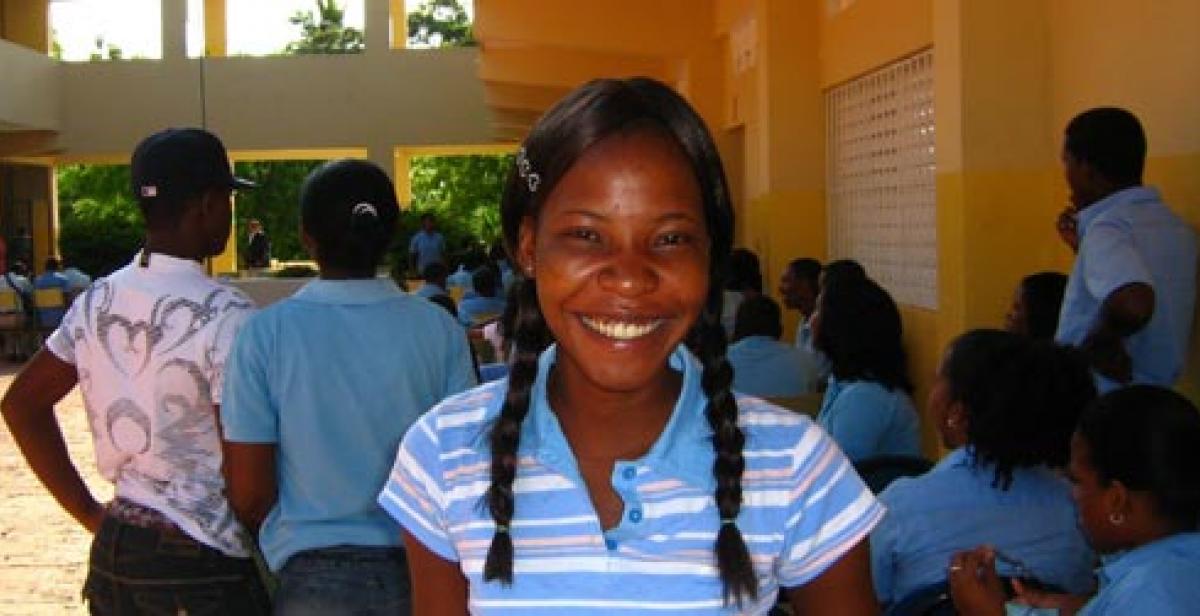Her name is Shanilia Melissa Derival Eneliza but in Jimaní, the Dominican border town that became a hub of humanitarian activity after the earthquake in Haiti, everyone knows her simply by her nickname, Rosa.
Although the frantic rhythm of emergency activities has died down, Rosa has volunteered for the last two months in one of the organisations that came to Jimaní to stay, the Jesuit Refugee and Migrant Service, a long time partner of Progressio.
For Rosa, who was born in the Dominican Republic 18 years ago to Haitian parents, coming of age changed her life completely and not exactly for the best. Just a few weeks after the earthquake in Haiti, while solidarity seemed to be at the heart of island binational relations on the island of Hispaniola, the Dominican Republic instituted a new constitution that left large numbers of Dominicans of Haitian descent stateless.
This new legal framework institutionalises what was already widespread and discriminatory denial of citizenship and human rights of individuals of Haitian descent – making it legal for the Dominican authorities to stop people, or even deny them freedom of movement, based on a slightly darker skin colour.
This is a reality that Rosa’s older brother, Juan, lived in flesh and blood last year when he was attacked by a CESFRONT soldier (the Dominican army and border security force) during a regular extradition operation in Jimaní, just because he looked Haitian – even if he was wearing his high school uniform and kept explaining that he was a Dominican student.
“We went to the Justice Palace in Jimaní and explained to the Fiscal (Public Defender) what happened to Juan. We showed him the big wound that he had on top of his head, made by the butt of a riffle. But the Fiscal said Juan was wrong to talk back to CESFRONT and it was entirely his own fault. I knew then that I wanted to become a lawyer and help people whose rights were violated,” said Rosa when asked what she felt after this attack.
The changes to nationality provisions denied Dominican citizenship to children born on Dominican soil to immigrant parents “residing illegally” in the country, even if decades had passed and the children were born and raised as Dominicans. This left young people like Rosa and her three brothers in a legal limbo.
“When we, the Haitian Woman Pastoral, met to share a meal with people from the Jesuit Service and I heard what they wanted to do for us here in Jimaní, I wanted to help and learn. After this time I know for sure I will be a lawyer for my people and anyone who suffers abuses. We are not alone any more,” added Rosa.
The truth is that Rosa’s eagerness to follow her dream and become a lawyer without a Dominican ID document is an uncertain journey. Her lack of ID denies her access to public and higher education, the formal work sector, services such as banks and loans, healthcare, property and even a birth certificate for her future children because the law considers her also “in transit”.
Nevertheless, together with the Jesuit Service, we are willing to travel side by side with Rosa and other people of Haitian origins living in Jimaní who represent more than a quarter of the entire population of this town, creating a collective border song where her affairs, and everybody´s affairs, ain't abused.
Vita Randazzo is a Progressio development worker in Hispaniola (the island shared by Haiti and the Dominican Republic).
Photo: Rosa back at school – a step towards her dream of becoming a lawyer. (photo: Progressio)



